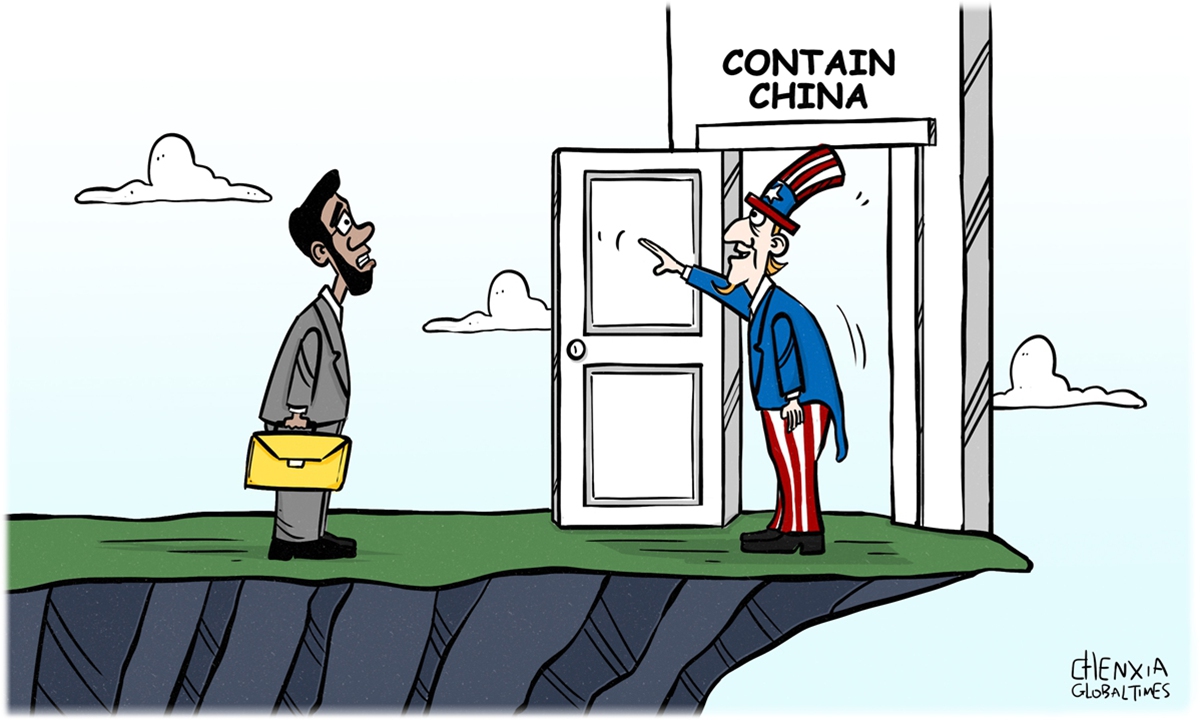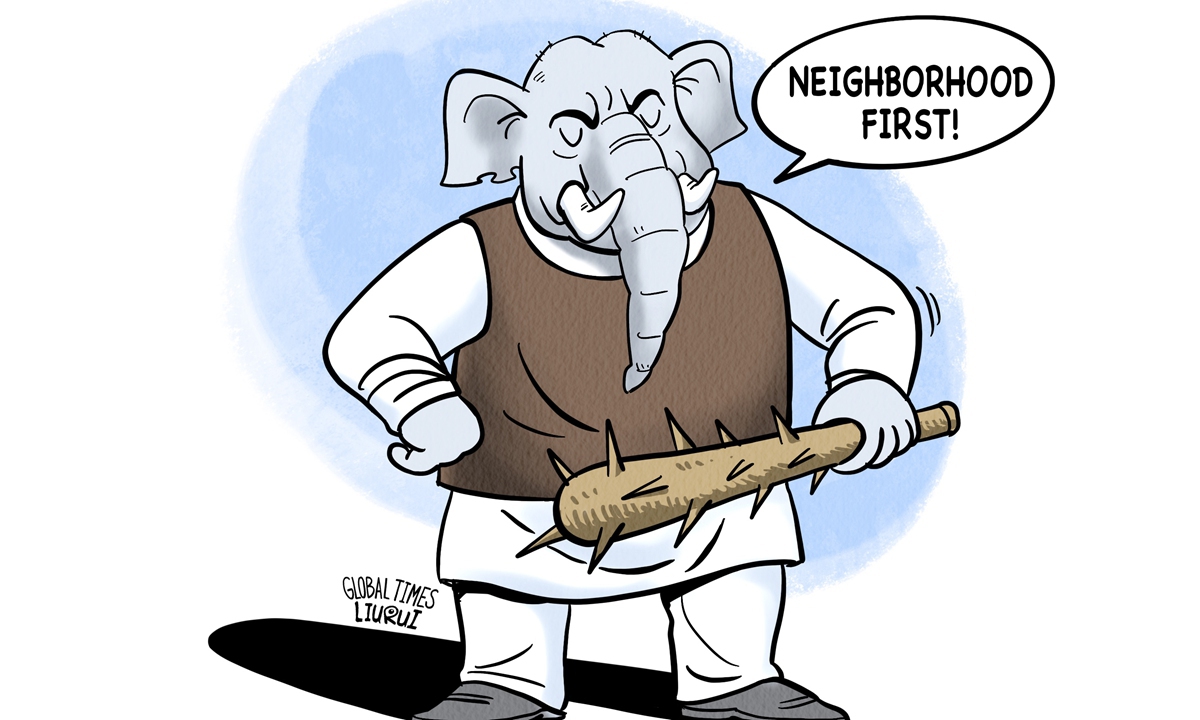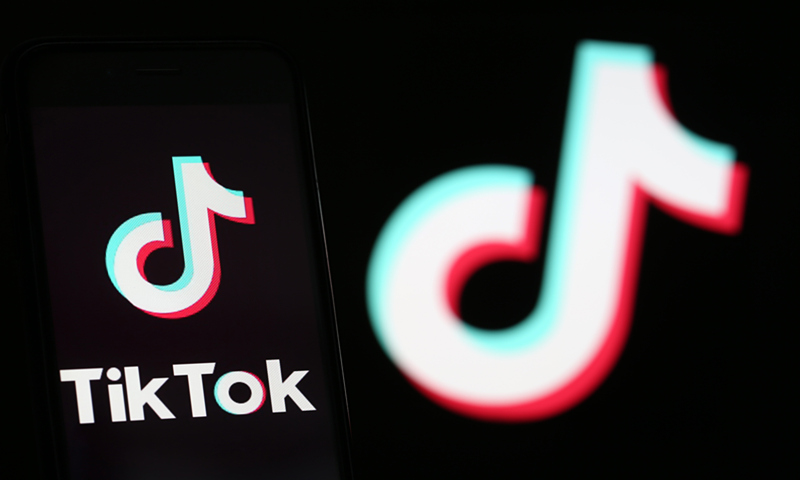
Illustration: Chen Xia/Global Times
Whenever China is touched upon, India is always sensitive. This sensitivity was heightened when some Indian social media influencers and vloggers showcased a positive, highly developing, and friendly China in their travel video blogs. Some Indians perceive it as pro-China propaganda and view it as a "threat." This time, the US is as sensitive as India.The VOA Chinese published a report on Sunday titled, "China is using Indian internet influencers to spread false information." The article said that Indian security establishment has zeroed in on over a dozen Indian social media influencers and vloggers who have allegedly been peddling Chinese government narratives. It dug up a news story reported by Indian media in February, quoting India officials as claiming they have become part of the strategy of the Communist Party of China, with grave implications for the country's national security.
The report also quoted an Indian expert as claiming China's aim is to display a moderate and opportunity-rich country that does not pose any threat, while making Indian people doubt their own government.
With the gradual recovery of tourism, a growing number of Indian backpackers and social media influencers, have been visiting China since 2023. These backpackers and influencers post videos about China's electronic products, high-speed trains, the hustle and bustle of cities, clean and pleasant rural life, as well as hospitable local people.
Naturally, the comments about China they received from Indian public opinion are quite different from the view of Indian mainstream media and politicians. For instance, some netizens wrote: "All these truths can hardly be seen on BBC, CNN"; "I'm jealous of China, and I want India to develop like China."
What the internet vloggers did was honestly documenting the real images of China and putting them online. China is certainly not their only filming location - some have been traveling across the world. Moreover, worldwide vloggers are recording their journeys in the same way, are they all influencing public opinion on purpose?
Due to the poor relationship between China and India, the Indian media and some Indian politicians have been intensifying their smear campaigns against China in recent years, often taking them to extreme levels. This time, what we are witnessing is Indian authorities attempting to muzzle their own people in order to prevent the Indian public from seeing China's true development.
India claims to be the world's largest democracy, which is supposed to have a high-level of free speech, Zhao Gancheng, a research fellow from the Shanghai Institute for International Studies, told the Global Times.
Observers noted that Indian netizens making comparison between China and India upon seeing China's modernization could cause concern for the Indian government, particularly during an election year. Yet if they do not wish to see people doubt their own government, both Indian media and politicians should address their country's issues more effectively, like delayed infrastructure projects, people lacking access to safe water, gender inequality and so on, rather than demonizing China. It only shows a lack of confidence.
What the VOA Chinese reports unmasked is not only India's mentality, but also that of the US. When US media outlets sense that they can hardly stop some key opinion leaders from presenting what China actually looks like, they would simply pin the label of "Chinese propaganda machine" on them, portraying everyone who does not fit Western narrative a "puppet" of China. Some influential bloggers have become victims of such smears and are forced to close their social media accounts under pressure.
But the accusations against them are so untenable. Take the VOA, which said the Indian internet influencers "seem" to be motivated by financial gains. This means, there is no evidence at all.
In India, those who align with the American cognitive framework are the traditional and outdated political forces. They hold misguided views on both China-India relations and China's development, and they constantly cater to or mimic the US in forging a hostile cognitive atmosphere toward China, Shen Yi, a professor at Fudan University, told the Global Times.
But Western countries are unable to monopolize or cover up the true development of China. The impact of Western efforts to block or distort information may have some effect in the short run, but will only gradually decrease, Shen said.
Closing one's eyes and ears won't bring development. Jealousy and attacks on positive public opinion toward China will eventually break faith with India's own people. Even VOA had to cite an Indian expert as admitting: Assuming that Indians will be easily influenced by pro-China propaganda is a derogation of Indian intelligence.



